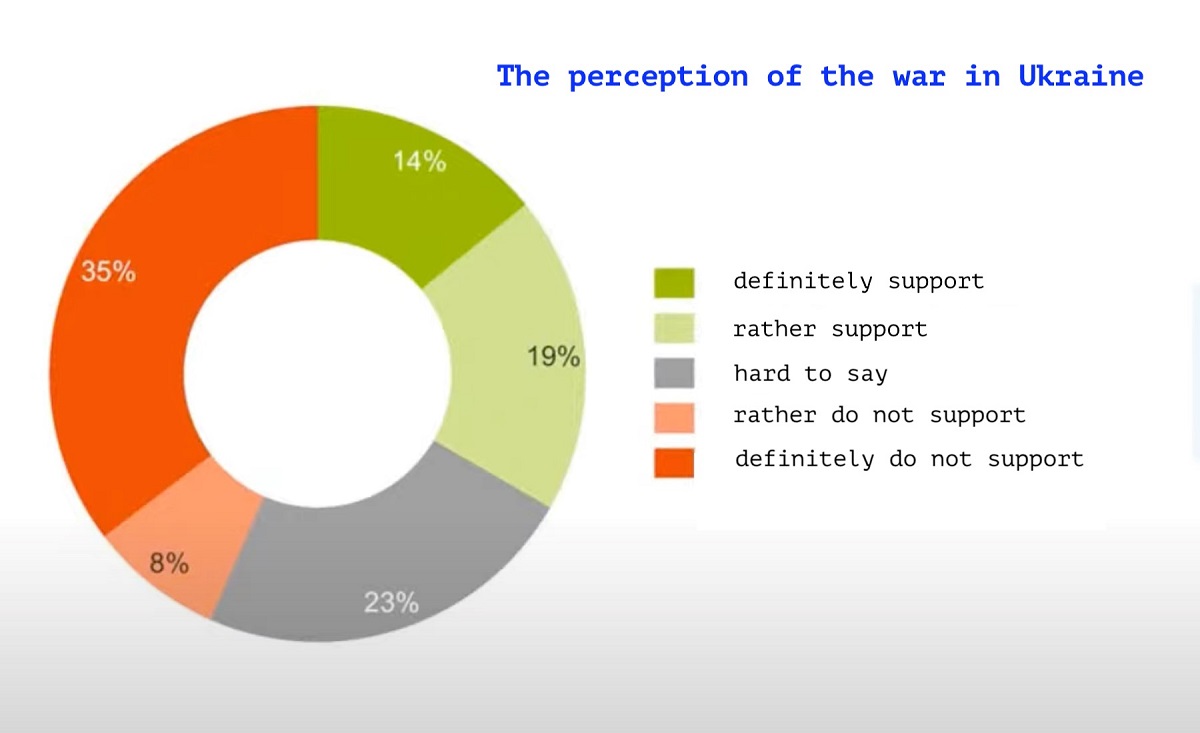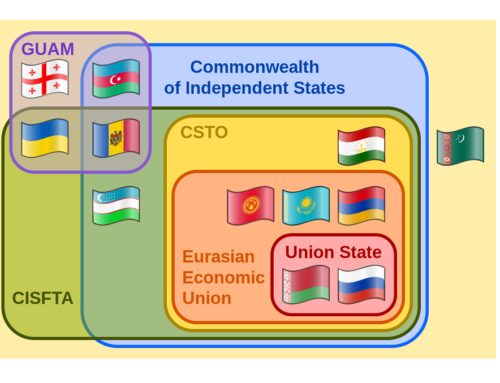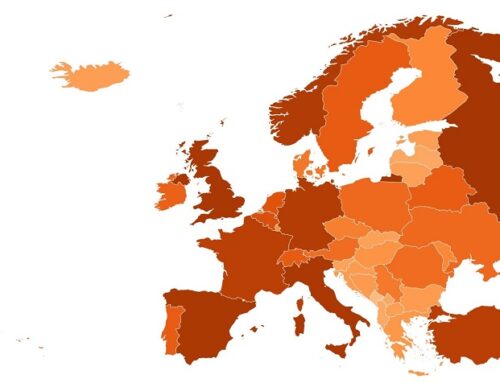The war in Ukraine
For more than 160 days the conflict have remained to be the most relevant topic of military-political discourse both in the region of Central and Eastern Europe and throughout the world. The Belarusian side continues to take part in the conflict indirectly. In the context of ongoing repressions and the lack of independent sociology within the country, sociologists are forced to rely on “remote” research methods.
The Belarus Initiative of the Chatham House continues to conduct public opinion polls of Belarusians with Internet access (75-82% of the total population of the country). The experts admit a static margin of error of 3.5%, and also note that the actual support for the position of the official Minsk may be slightly higher than the survey results. The latest one was conducted on June 6-17, 2022.
Speaking about its results, it is worth noting the continued lack of broad support for the unleashed war in Ukraine among the Belarusian population: only 33% of respondents support the actions of the Russian army, while 43% oppose it. It is also important to point out the extremely low percentage of support for joining the conflict for either side: for Ukraine – 4%, for Russia — 5%.
At the same time, sociologists note a slight change in the perception of the potential interference in the armed conflict: 52% of Belarusians believe that the Belarusian troops will not participate in the war (+5%), while 41% of respondents found it difficult to answer. Only 7% admit such a development of events (-2%). A large percentage of people without a definite position demonstrates a rather high degree of distrust of the population towards the country’s leadership and Minsk’s ability to resist Kremlin pressure.
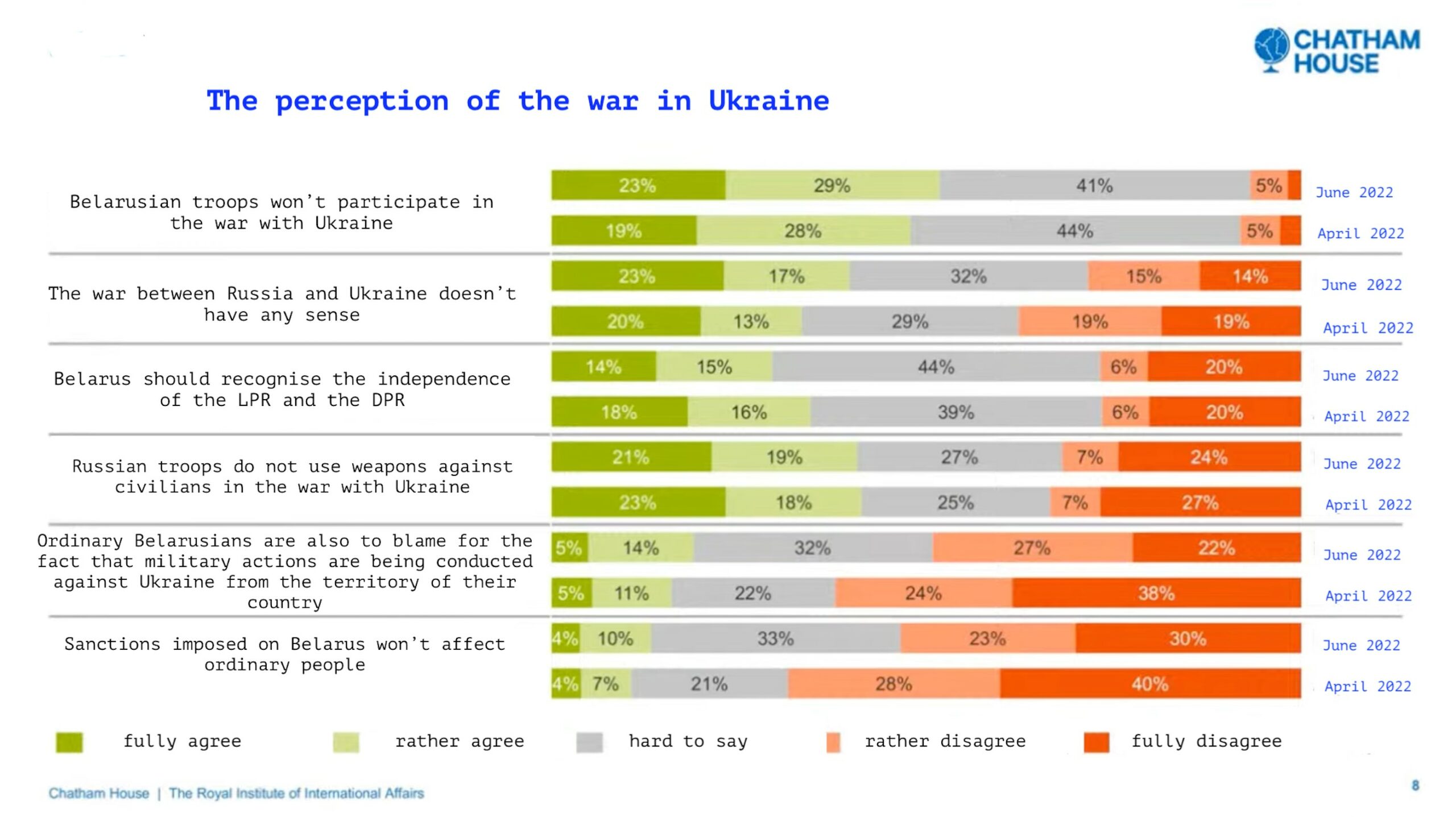
As for the opinion of Belarusians about the consequences of the war, it underwent minor changes in comparison with the April survey data. Only 14% see a positive effect for Belarus (- 4%), and 55% see it as a negative determinant (-2%).
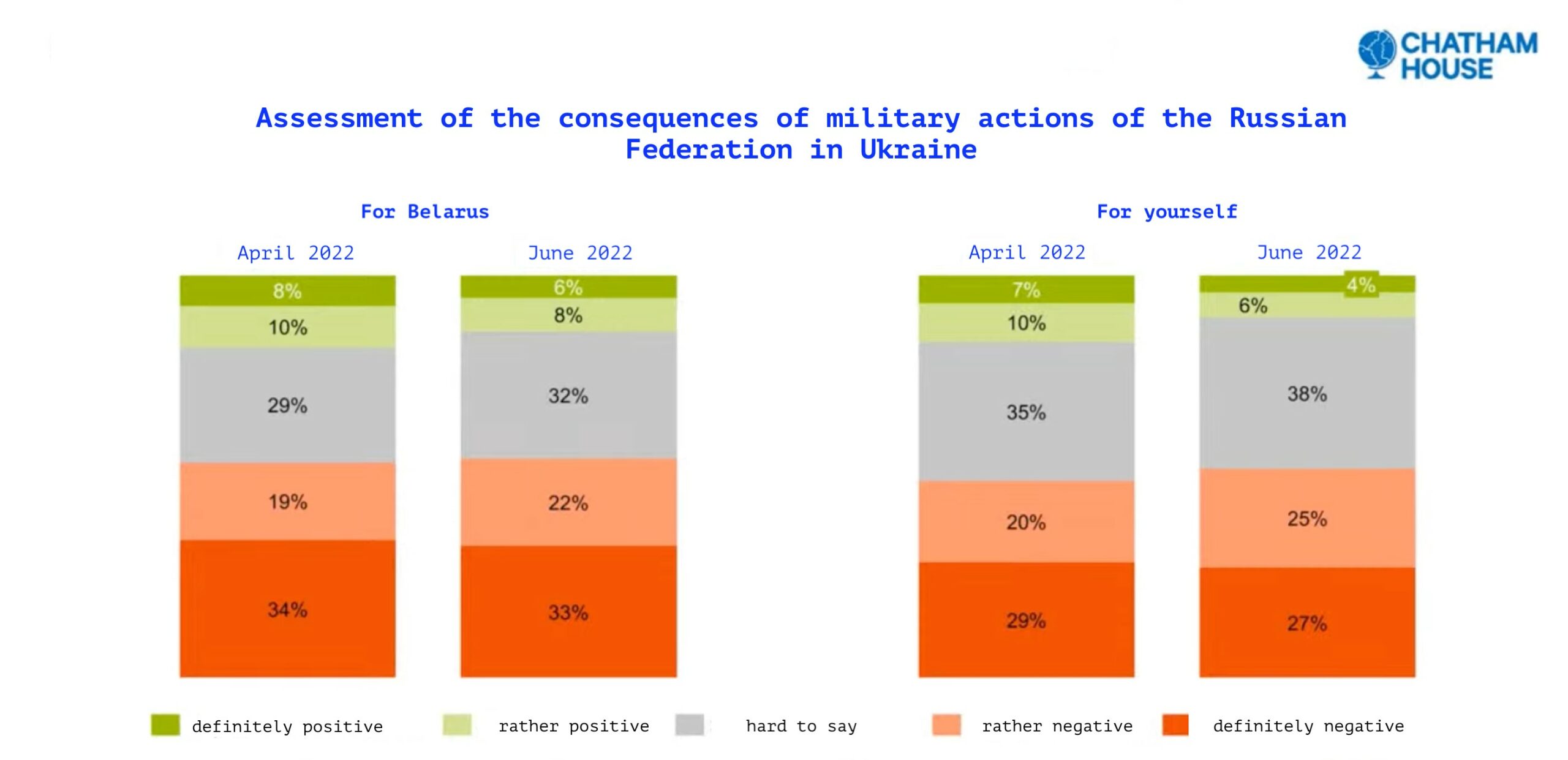
Another determinant of the inhomogeneity of public opinion became the number of supporters of the idea of recognising the independence of quasi-state entities in the Luhansk and Donetsk regions. Thus, 29% of Belarusians consider it necessary to do so, while 26% of respondents do not support such an idea. One should emphasise the high percentage of respondents who do not have a clear position on this issue — 45%.
A crucial element in the process of creating such a «landscape» of perception is wide influence of Russian mass media in Belarusian. It’s confirmed by the following numbers as well: 40% of respondents believe that Russian troops do not use weapons against civilians, while 31% of respondents have the opposite point of view.
It seems quite impressive, how Belarusians assess possible actions of their militaries in the event of its sending to the war. In comparison to the April poll, the uncertainty of respondents has increased: 38% find it difficult to answer such question (+7%). At the same time, 20% of respondents believe that Belarusians would take an active part on the side of Russia and the same percentage (20%) has the number of adherents of the opinion, that militaries would refuse to participate in the war. Besides, 19% of respondents think that Belarusians would have attempted to escape from the battlefield and 9% believe in surrendering to the Ukrainian troops without a fight.
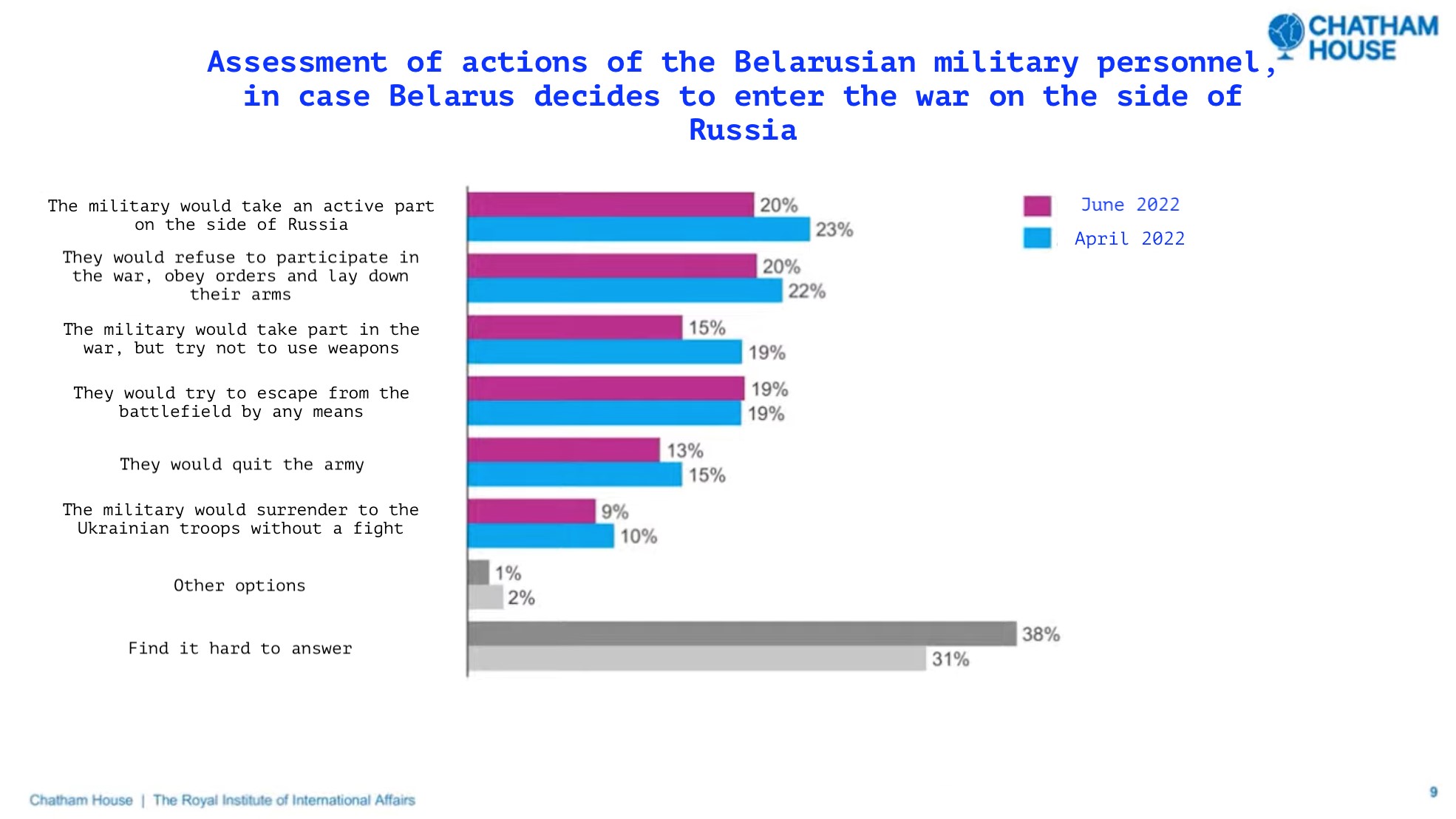
Foreign policy
The perception of various international players might be a surprise for those unfamiliar with Belarus and its population. So, despite the war, Belarusians continue to treat both Russia (71% of respondents) and Ukraine (65%) well. The leader in terms of friendly attitude towards a country is, surprisingly, China (74%). In turn, 60% of Belarusians have a positive attitude towards the EU, and only 42% — towards the US.
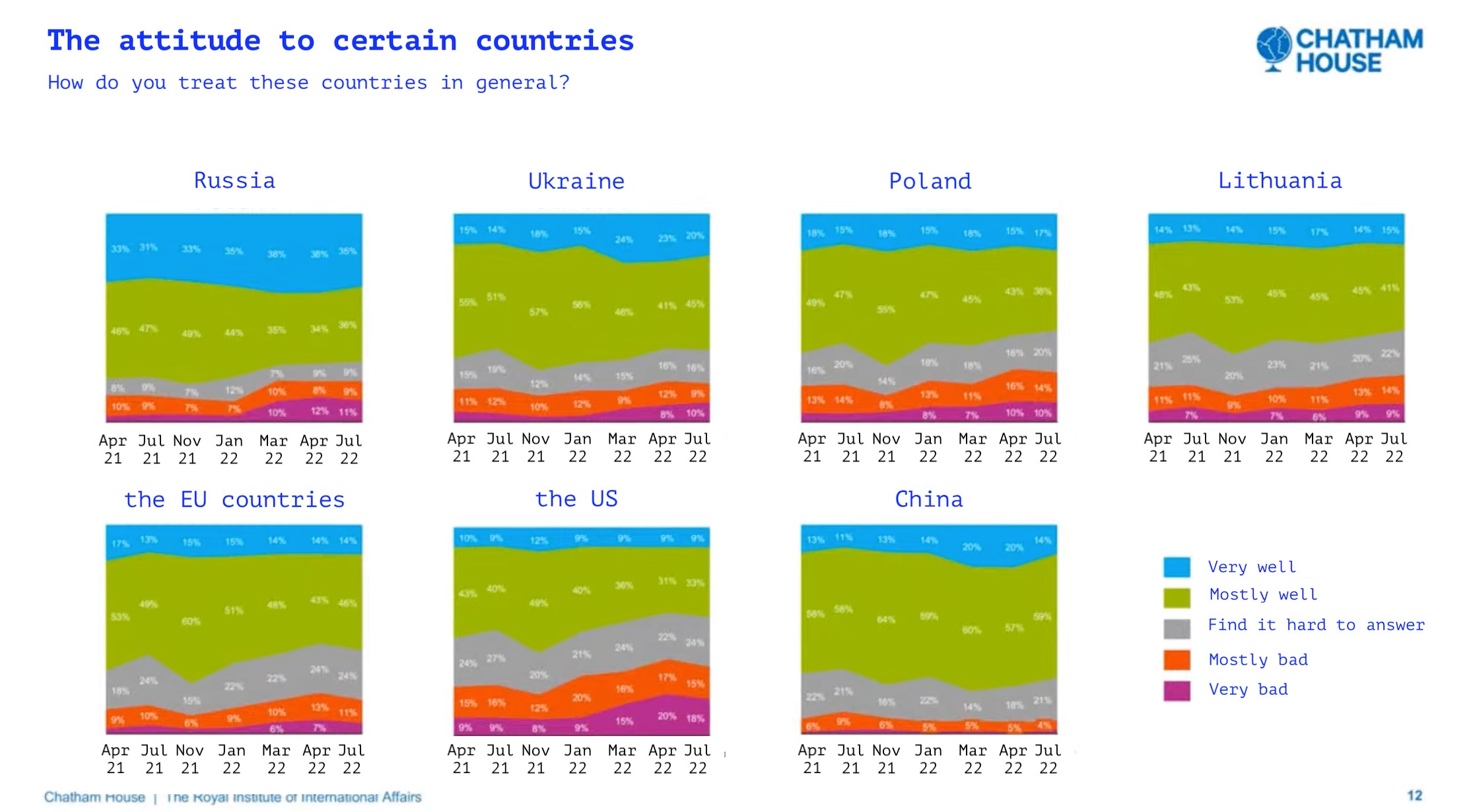
However, it is extremely important to emphasise the change in the perception of Belarusian participation in the military bloc of the Collective Security Treaty Organization (CSTO) after there is a change of political power in the country. Since the beginning of the observations of the Belarus Initiative of the Chatham House (November 2020), the percentage of adherents of the idea of maintaining it is the lowest — 42% (-7% by April 2022 and -21% compared to November 2022).
The opposite situation is with the number of supporters of the idea of striving for withdrawal and maintaining neutrality. These numbers have reached its maximum — 48% (+4% compared to April 2022 and +17% since November 2020). At the same time, one should notice, only 10% of respondents support joining NATO (+3% by April 2022).
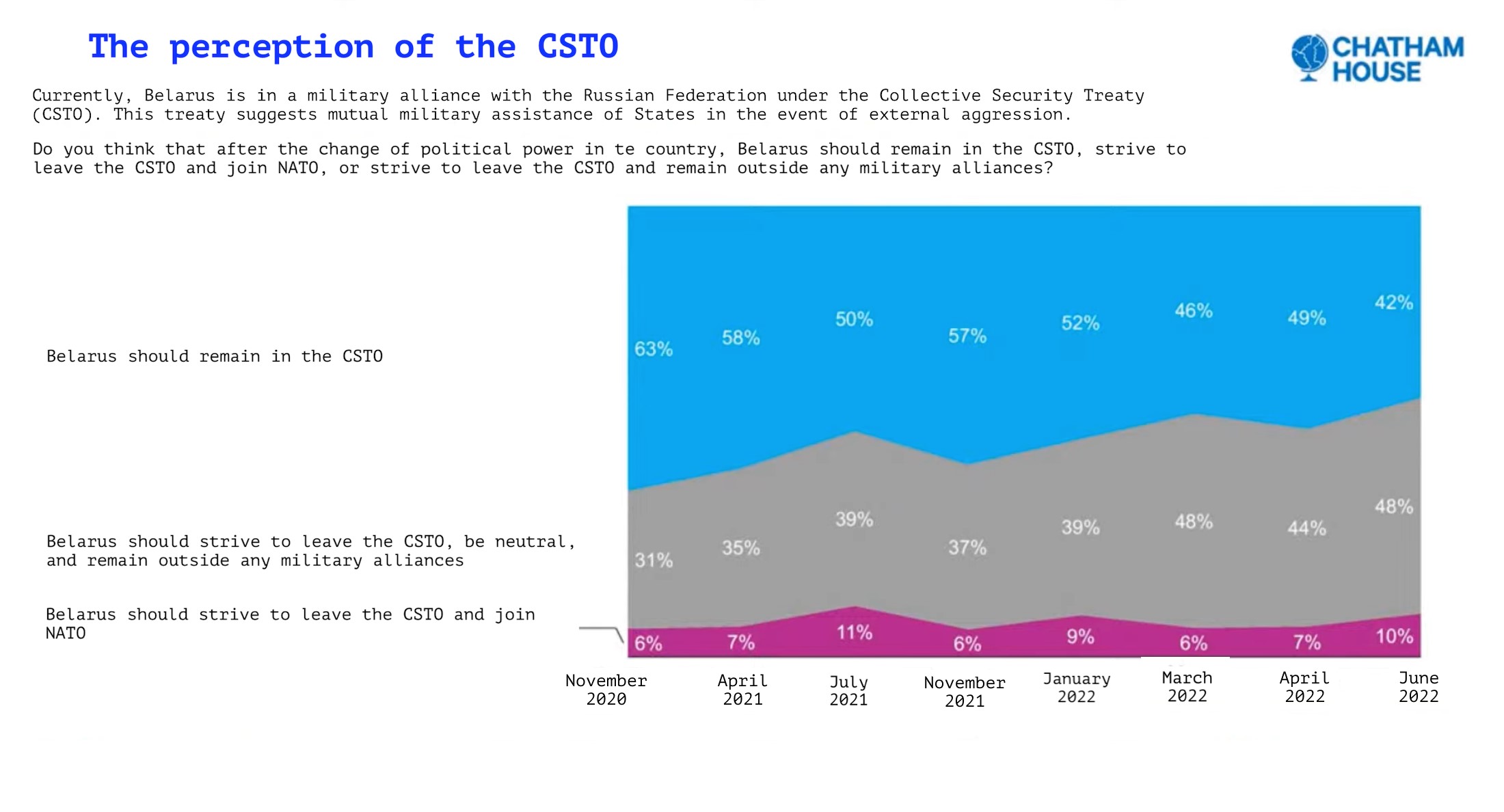
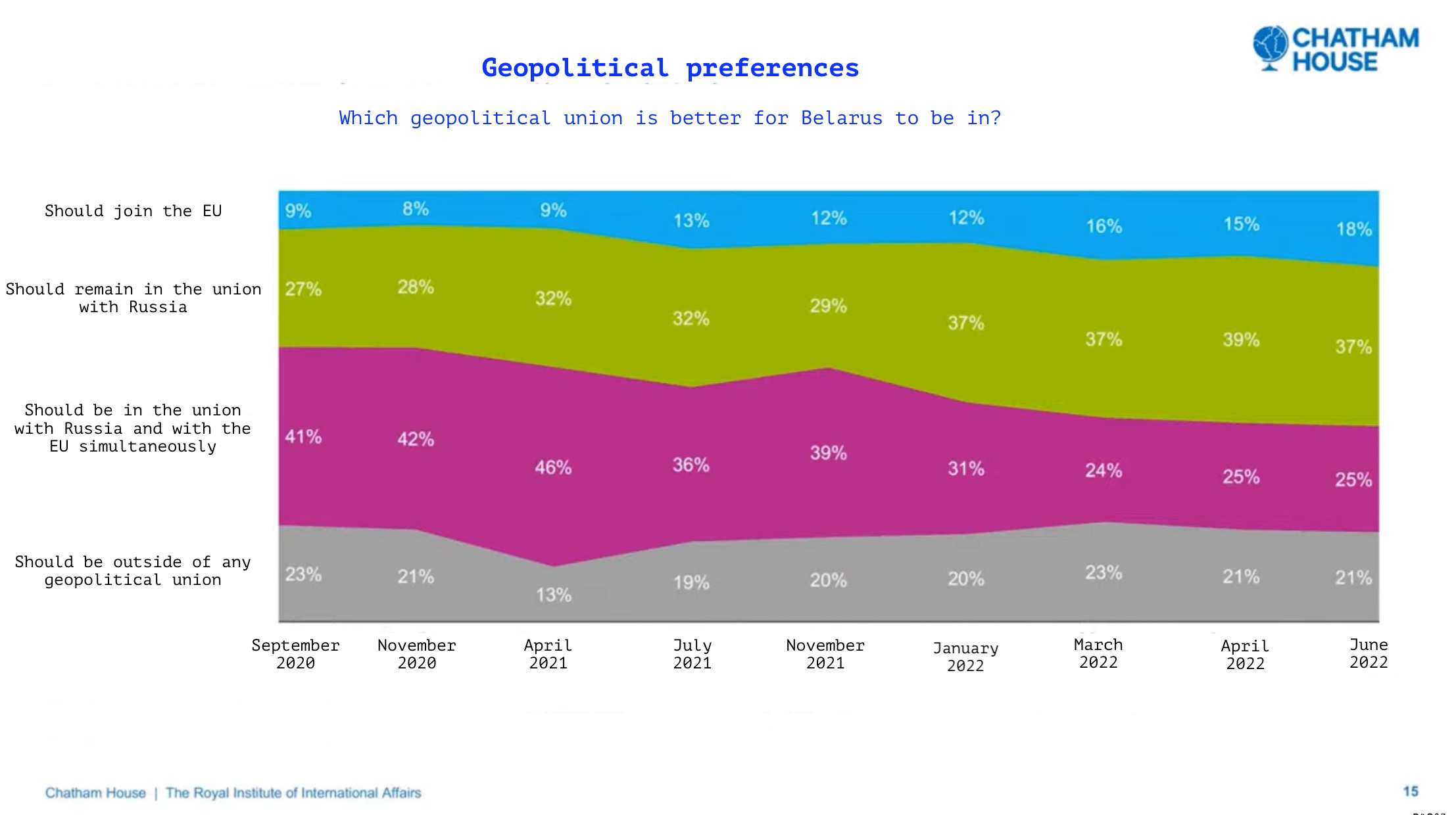
Sociologists also learned about the Belarusians’ opinion about the perspectives of the deployment of a Russian military base on the territory of the country. In this question, the opinion remained similar to previous observations: 24% of respondents support this idea, 43% are negative about it, 20% find it difficult to answer, 14% are indifferent. The deployment of Russian nuclear weapons in Belarus is supported by 20%, against — 80%.
Speaking about geopolitics, experts learned that Belarusians now are less likely to believe in the possibility of an alliance with both the EU and Russia — only 25% share this opinion (-14% by November 2021), which is explained by the aggravation of Russia’s relations with Europe. Only 18% of respondents believe that Belarus should join the EU, and 37% of respondents are sure, that Belarus should remain in the union with Russia. At the same time, 21% of respondents are convinced that Belarus should be outside of geopolitical alliances
It is important, however, to emphasise the high share of support for an economic union with Russia and the unwillingness of Belarusians to have a single military-political policy or to join the Russian Federation. In particular, 33% of respondents support the preservation of the free trade zone, 33% support the existence of the common economic space, 13% support the common economic space and unified military-political policy, and only 5% see Belarus as a part of the Russian Federation in the future.
Summing up, it is worth noting the continuing polarisation of Belarusian society both on issues of support for Russian aggression against Ukraine and on foreign policy issues. A significant part of society, despite the war, continues to have a positive attitude towards Russia and Belarusian alliance with it in the economic sphere. A good attitude is maintained towards Ukraine as well. At the same time, there is a low level of support for Belarus’ intervention in the war, as well as high indicators of public uncertainty about what is happening in Ukraine and the prospects for the development of the situation in the region.

